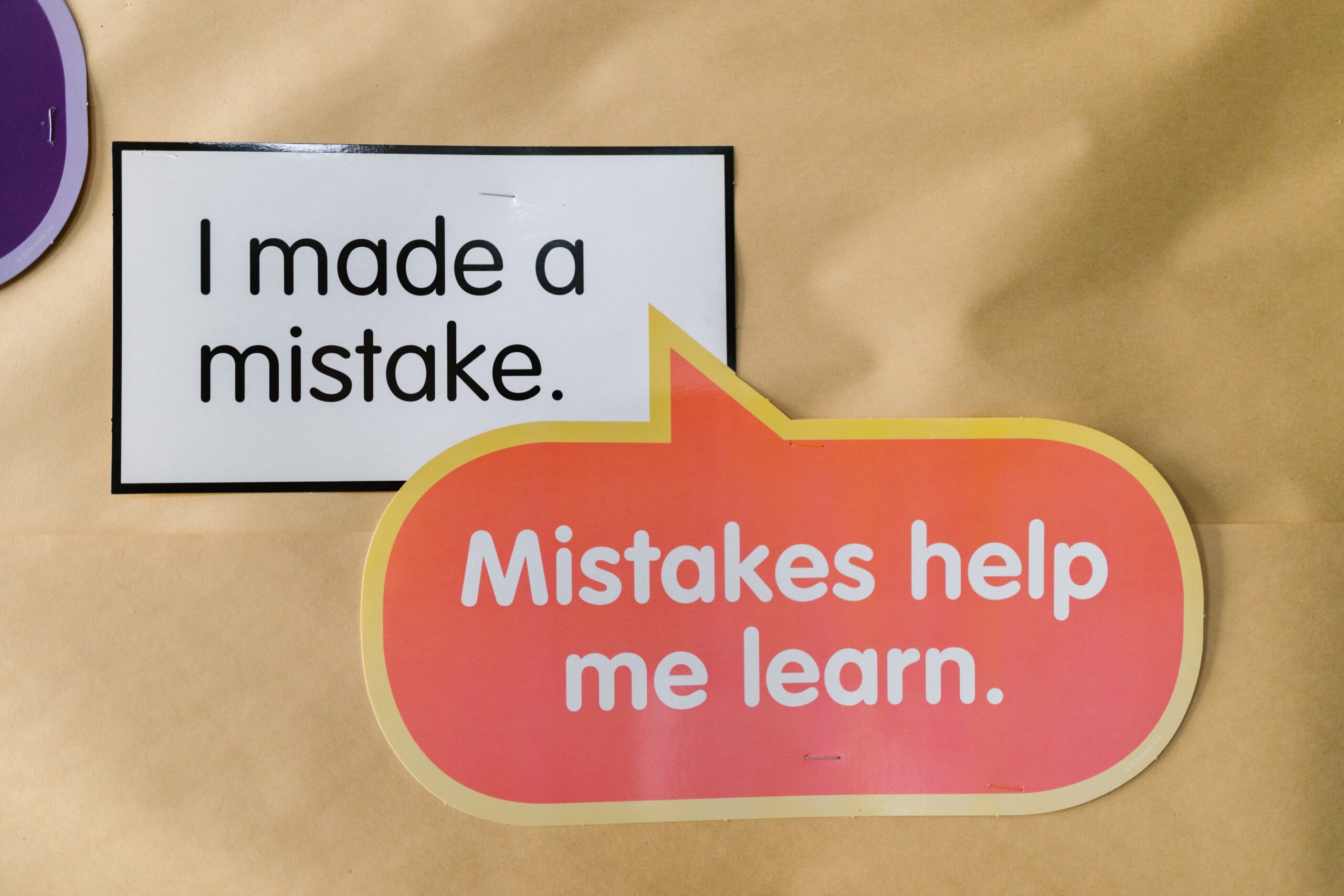Making mistakes is inherently human, but people can take the opportunity to grow and learn from their errors. Studies have shown that when someone makes a mistake, the brain responds with two signals: “An initial response that indicates something has gone awry. . . and a second that indicates the person is consciously aware of the mistake and is trying to right the wrong.” These error signals occur in the medial frontal cortex about 100 microseconds following the error. The brain’s reaction to errors can be detected with an electroencephalogram. This Error-related Negativity “is typically evoked with simple cognitive tasks when an individual responds incorrectly.” The ERN predicts the degree to which participants are biased to learn more from their mistakes than their correct choices.
How people view themselves as learners affects their approach to problems. Psychologist Carol Dweck developed the mindset theory as a reaction to the self-esteem movement, which lavished unconditional praise on students simply for participation rather than for performance. Students who believe that they are born with a certain ability that nothing can change have a fixed mindset. On the other hand, those who believe that they can change their brain and make it stronger through hard work have a growth mindset.
Teachers can promote a positive learning environment by emphasizing effort and demonstrating that mistakes are an integral part of the learning process. They can employ a number of strategies to foster a growth mindset. Yet, simply praising a student for effort is insufficient to promote a growth mindset. “Students need to try new strategies and seek input from others when they’re stuck. They need this repertoire of approaches—not just sheer effort —to learn and improve.” Teachers can explain what mistakes students made and allow them to correct and re-do their work.
“Experimental investigations indicate that errorful learning followed by corrective feedback is beneficial to learning.” So, recognize mistakes, but work carefully to correct them and learn.


